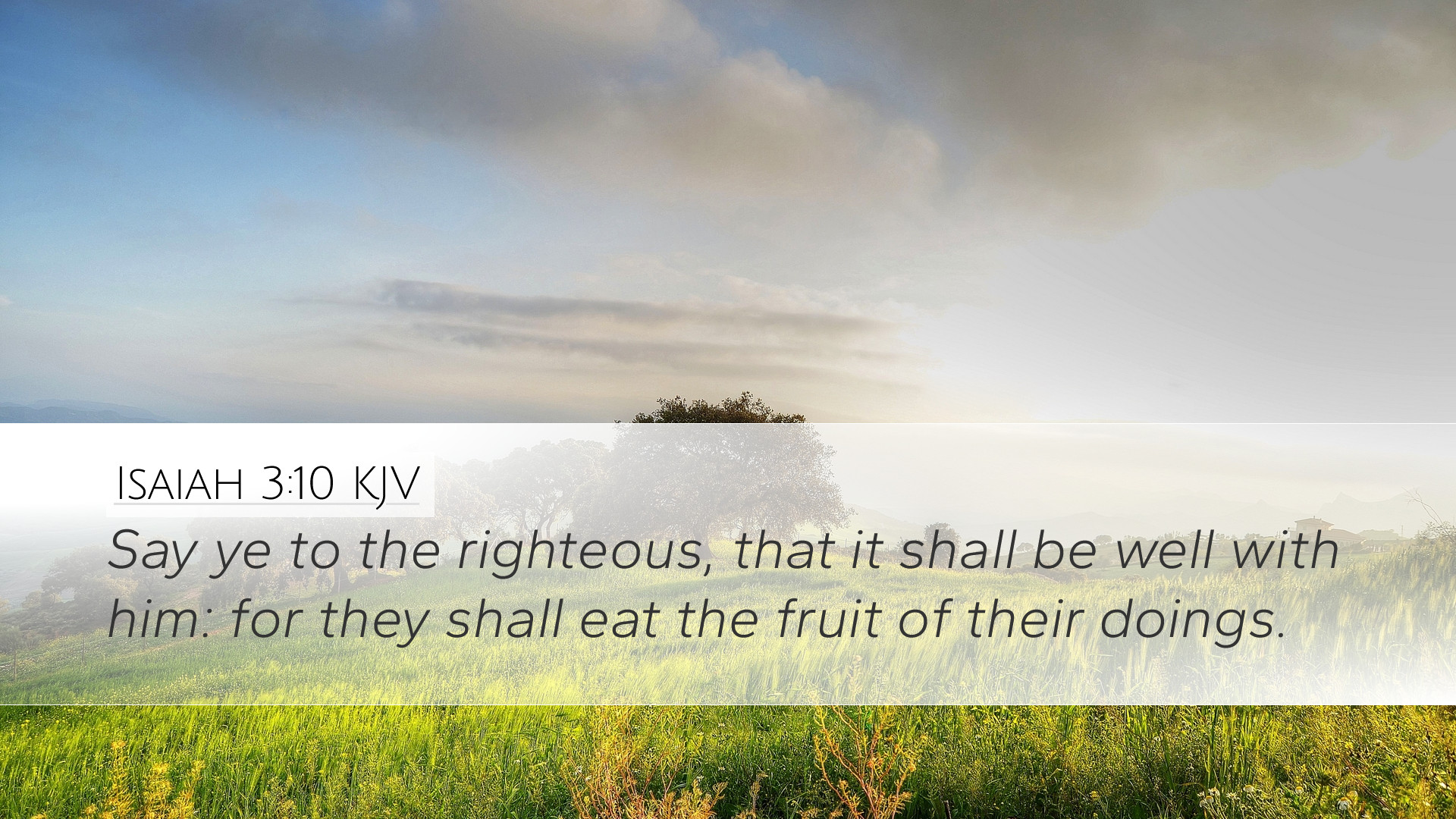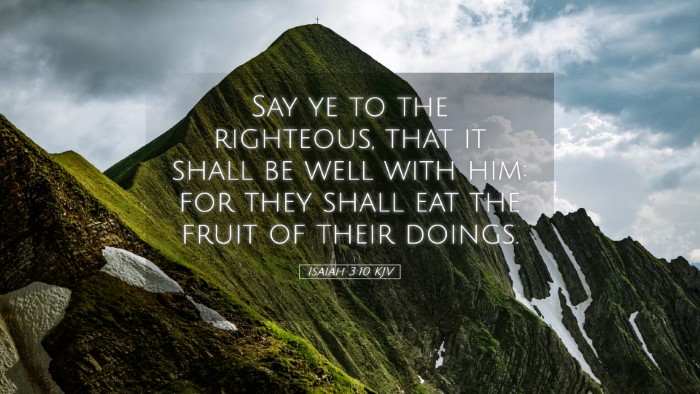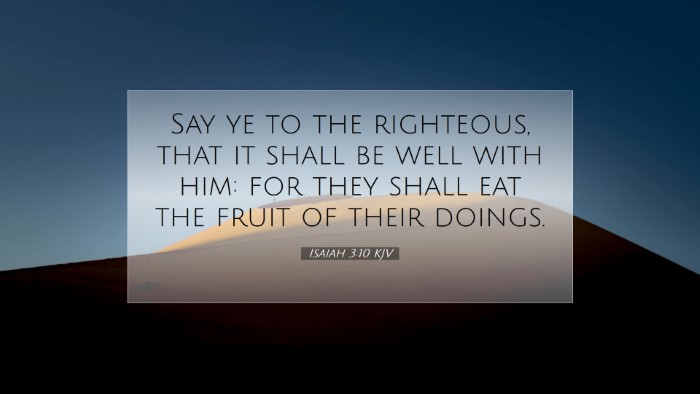Isaiah 3:10 - Bible Commentary
Verse Text: “Say ye to the righteous, that it shall be well with him: for they shall eat the fruit of their doings.”
Introduction
Isaiah 3:10 belongs to a section in the Book of Isaiah that encompasses themes of judgment and restoration. In this verse, the prophet Isaiah conveys a message of hope to the righteous amidst the impending calamities facing Judah. This commentary draws upon insights from noted public domain sources to explore its meanings and implications.
Contextual Background
This passage comes during a time of moral decline in Judah, as Isaiah prophesies about the judgment that will come upon the people due to their disobedience to God. However, interspersed within these prophecies of doom is the assurance for the faithful remnant who adhere to God's ways, a theme that resonates throughout prophetic literature.
Exegesis of the Verse
Meaning of "Say ye to the righteous": Isaiah’s instruction to communicate directly to the righteous highlights the importance of encouraging those who hold fast to God’s covenant. This segment emphasizes the distinction between the righteous and the wicked in society, providing a clear reminder of God’s favor on those who seek Him.
"It shall be well with him": The assurance that “it shall be well with him” encapsulates the promise of divine protection and reward. Matthew Henry elaborates that this phrase denotes not merely physical well-being but also spiritual prosperity and peace, reinforcing the notion that the ultimate success of the righteous is rooted in their relationship with God.
"For they shall eat the fruit of their doings": This line asserts the principle of divine justice, suggesting that the deeds of the righteous will yield positive outcomes. Adam Clarke remarks on the agricultural metaphor of “eating the fruit” as illustrative of the rewards that stem from a life lived in accordance with God's will. The righteous will experience the blessings of their righteous actions and decisions.
Theological Implications
The verse presents vital theological assertions regarding God's governance of the world. It communicates the idea that God rewards righteousness and punishes wickedness, encapsulating a fundamental aspect of Christian moral theology. This theme resonates through both the Old and New Testaments, as seen in Jesus' teachings about reaping and sowing (Galatians 6:7).
Hope in Times of Judgment: For pastors and theological educators, this verse serves as a beacon of hope during periods of judgment. Despite the socio-political turmoil Israel faced, Isaiah reminds the faithful that their allegiance to God results in ultimate well-being. Such messages are crucial for pastoral care, offering encouragement to church communities in contemporary settings faced with moral and spiritual crises.
Practical Applications
-
Encouragement for Believers: It is essential for church leaders to regularly remind congregations that their faithful actions are not unnoticed by God. Regular affirmation can strengthen their resilience amidst adversity.
-
Integrating Justice Principles: The call to recognize the blessings of righteousness can prompt discussions on social justice concerns within the church, encouraging believers to align their actions with biblical teachings.
-
Faith during Trials: Believers should take solace in the understanding that even during trials or societal decline, those adhering to God’s ways can expect His favor and eventual vindication.
Suggested Further Reflection
Pastors and theologians may find it beneficial to explore the broader context of righteousness in Isaiah. Study how Isaiah emphasizes the pervasive effects of societal sin contrasted with God’s commitment to those who uphold justice. Delving into cross-references throughout scripture can enhance understanding of the continuity of God's promises.
Conclusion
Isaiah 3:10 serves as a profound reminder of God's justice and mercy. For the righteous, there is a promise of well-being that transcends earthly challenges. This commentary elucidates its message for contemporary readers, offering both historical insights and practical applications for living out faith in turbulent times.


